Explore the top 14 rock wool panel brands in 2026 with FUNAS. Trusted rock wool board solutions backed by certifications and custom services.
Rock wool, also called mineral wool or stone wool, is a great insulation material made from natural rocks like basalt or diabase. These rocks are melted at high temperatures and spun into fibers, forming a dense, fluffy material ideal for insulation. Rock wool panels are used a lot in construction for thermal insulation, soundproofing, and fire resistance. Because rock wool has a high R-value, it is excellent for energy conservation, which results in lower heating and cooling expenses. Rock wool is different from traditional asbestos-containing materials because it's safe and eco-friendly. It doesn't release harmful fibers. Additionally, it works incredibly well for soundproofing rock wool in high-temperature settings, such as gas fireplaces. Rock wool panels are a great option for industrial, residential, or commercial use because they're excellent for thermal and acoustic insulation.
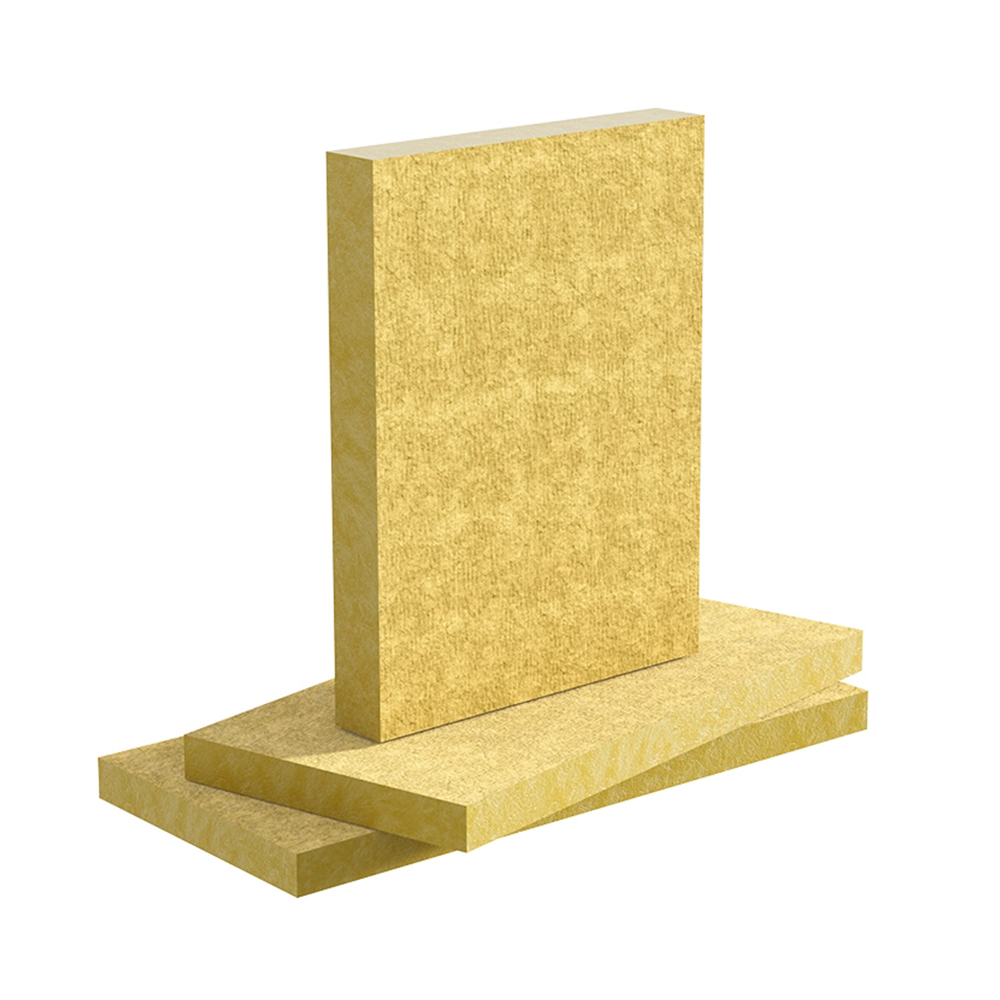
2026 Rock Wool Market Trends: Professional Analysis
The global construction industry is focusing more and more on energy efficiency and sustainability, which has led to a big increase in the demand for rock wool panels. The global market for rock wool insulation is expected to grow to USD 11.2 billion by 2025, according to Grand View Research. The material's exceptional R value, which offers superior thermal resistance, and its inherent soundproofing properties are what cause this surge. With more and more focus on green building certifications, rock wool is quickly becoming a top choice for both residential and commercial projects. Rock wool for gas fireplaces is also becoming popular because it's highly fire-resistant, making it perfect for high-temperature applications.
In my professional opinion, rock wool is the best option out there. It's durable and reliable, and it can really help save energy while making our facilities safer. Rock wool insulation might cost more than other materials, but the long-term benefits—like lower energy costs and fire protection—make it worth the investment. From what I've seen, rock wool panels are a must for any sustainable construction project, and partnering with reliable rock wool board suppliers can ensure the highest quality and performance for your building's needs.
Top 14 Rock Wool Panels Brands: In-Depth Analysis
-
1. ROCKWOOL Group (Denmark)
Product Range: Rock wool panels, rock wool boards, and insulation solutions for residential, commercial, and industrial use.
Key Strengths: Global leader in insulation, exceptional fire resistance, and thermal performance.
Certifications: ISO 9001, CE.
Disadvantages: Higher cost compared to some local competitors; availability issues in certain regions.

-
2. FUNAS (China)
Product Range: Specializes in high-quality rock wool panels, rock wool boards, and customized insulation solutions.
Key Strengths: Known for eco-friendly production processes, fire resistance, and superior thermal and acoustic performance.
Certifications: ISO 9001, CE, ROHS, UL, FM.
Disadvantages: Newer company compared to some major global brands; limited presence in some Western markets.
-

-
3. Knauf Insulation (Germany)
Product Range: Rock wool panels, rock wool boards, and other insulation materials.
Key Strengths: Energy-efficient solutions, excellent fire resistance, and soundproofing properties.
Certifications: ISO 14001, CE.
Disadvantages: Limited availability of customized solutions; relatively higher price point.

4. Isover (Saint-Gobain) (France)
Product Range: Provides both rock wool insulation and glass wool solutions.
Key Strengths: High thermal insulation and sustainability.
Certifications: ISO 9001, CE.
Disadvantages: Product range may not cater to all industrial needs; slightly higher pricing compared to local alternatives.
-

-
5. Paroc (Finland)
Product Range: Rock wool panels, boards, and custom insulation solutions.
Key Strengths: Exceptional fire resistance, thermal and acoustic insulation.
Certifications: CE, ISO 14001.
Disadvantages: Some product ranges are limited to high-end markets, which may not be suitable for cost-sensitive projects.
-

-
6. Johns Manville (USA)
Product Range: Rock wool board insulation, panels, and other thermal products.
Key Strengths: Focus on sustainability and energy savings.
Certifications: UL, ISO 9001.
Disadvantages: Limited availability of certain products in specific regions; higher price compared to other insulation materials.
-
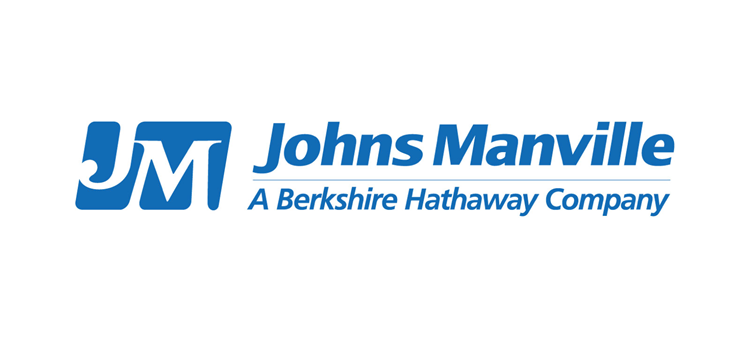
-
7. Armacell (Germany)
Product Range: Rock wool boards and insulation products for industrial applications.
Key Strengths: Excellent soundproofing and thermal insulation properties.
Certifications: ISO 9001.
Disadvantages: Focuses more on industrial applications; residential market penetration is weaker.
-

-
8. Saint-Gobain Ecophon (Sweden)
Product Range: Rock wool panels for soundproofing and acoustic applications.
Key Strengths: Exceptional sound absorption and thermal insulation.
Certifications: ISO 9001, CE.
Disadvantages: Primarily focused on acoustic applications, so not ideal for general insulation purposes.
-

-
9.Kingspan Insulation (Ireland)
Product Range: Rock wool panels, boards, and insulation solutions for residential, commercial, and industrial applications.
Key Strengths: Kingspan is known for high-performance insulation solutions that offer excellent thermal, fire, and acoustic properties. Their products are energy-efficient and environmentally friendly.
Certifications: ISO 9001, CE, ISO 14001.
Disadvantages: Kingspan products may come at a higher price point compared to some other insulation brands, which could be a consideration for budget-sensitive projects. Additionally, while they provide excellent overall performance, some of their products may require specialized installation.
-

-
10. Thermafiber (USA)
Product Range: Rock wool boards and insulation solutions for high-performance needs.
Key Strengths: Strong thermal insulation and fire resistance.
Certifications: ISO 9001, UL.
Disadvantages: Marketed more for commercial and industrial use; limited availability in certain regions.
-
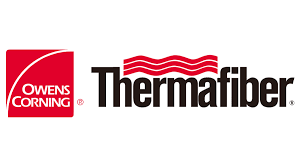
-
11. Kimmco (Kuwait)
Product Range: Rock wool boards and panels for thermal and acoustic insulation.
Key Strengths: Offers a range of fire-resistant and eco-friendly products.
Certifications: ISO 9001, CE.
Disadvantages: Limited range of products for specialized applications; higher shipping costs for regions outside the Middle East.
-
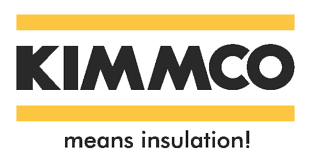
-
12. Siderise (UK)
Product Range: Focuses on rock wool board insulation for fire safety and soundproofing applications.
Key Strengths: Highly regarded for its fire-resistant insulation solutions.
Certifications: CE, UL.
Disadvantages: Primarily geared toward fire safety and acoustic applications; limited thermal insulation options for some needs.
-

-
13. Mannok Insulation (Ireland)
Product Range: Offers a variety of rock wool panels and insulation boards.
Key Strengths: Focuses on sustainable insulation solutions.
Certifications: ISO 9001, CE.
Disadvantages: Product availability may be limited in certain markets outside of Europe.
-
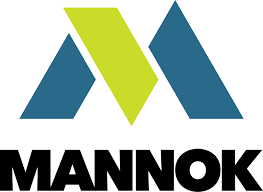
-
14. BASF (Germany)
Product Range: Provides high-performance rock wool panels for insulation and acoustic solutions.
Key Strengths: Known for innovation in construction and building materials.
Certifications: ISO 9001, CE.
Disadvantages: May be considered a premium brand, leading to higher prices for standard solutions.
-

-
Product Comparison Table: Rock Wool Panels
-
| Brand |
Product Types |
Fire Resistance |
Thermal Insulation |
Soundproofing |
Certifications |
Price Range |
| ROCKWOOL Group |
Rock wool panels, rock wool boards, and insulation solutions for residential, commercial, and industrial use. |
Excellent |
High |
Excellent |
ISO 9001, CE |
High |
| FUNAS |
Specializes in high-quality rock wool panels, rock wool boards, and customized insulation solutions. |
Excellent |
High |
Good |
ISO 9001, CE, ROHS, UL, FM |
Medium-High |
| Knauf Insulation |
Rock wool panels, rock wool boards, and other insulation materials. |
High |
High |
Good |
ISO 14001, CE |
Medium |
| Isover (Saint-Gobain) |
Provides both rock wool insulation and glass wool solutions. |
High |
High |
Medium |
ISO 9001, CE |
Medium |
| Paroc |
Rock wool panels, boards, and custom insulation solutions. |
Excellent |
High |
Excellent |
CE, ISO 14001 |
High |
| Johns Manville |
Rock wool board insulation, panels, and other thermal products. |
High |
Medium |
Good |
UL, ISO 9001 |
Medium |
| Armacell |
Rock wool boards and insulation products for industrial applications. |
High |
High |
Good |
ISO 9001 |
Medium-High |
| Saint-Gobain Ecophon |
Rock wool panels for soundproofing and acoustic applications. |
Excellent |
High |
Excellent |
ISO 9001, CE |
High |
| Kingspan Insulation |
Rock wool panels, boards, and insulation solutions for residential, commercial, and industrial applications. |
Excellent |
High |
Excellent |
ISO 9001, CE, ISO 14001 |
High |
| Thermafiber |
Rock wool boards and insulation solutions for high-performance needs. |
Excellent |
High |
Good |
ISO 9001, UL |
Medium |
| Kimmco |
Rock wool boards and panels for thermal and acoustic insulation. |
High |
Medium |
Good |
ISO 9001, CE |
Medium |
| Siderise |
Focuses on rock wool board insulation for fire safety and soundproofing applications. |
Excellent |
High |
Excellent |
CE, UL |
High |
| Mannok Insulation |
Offers a variety of rock wool panels and insulation boards. |
Excellent |
High |
Excellent |
ISO 9001, CE |
Medium-High |
| BASF |
Provides high-performance rock wool panels for insulation and acoustic solutions. |
Excellent |
High |
High |
ISO 9001, CE |
High |
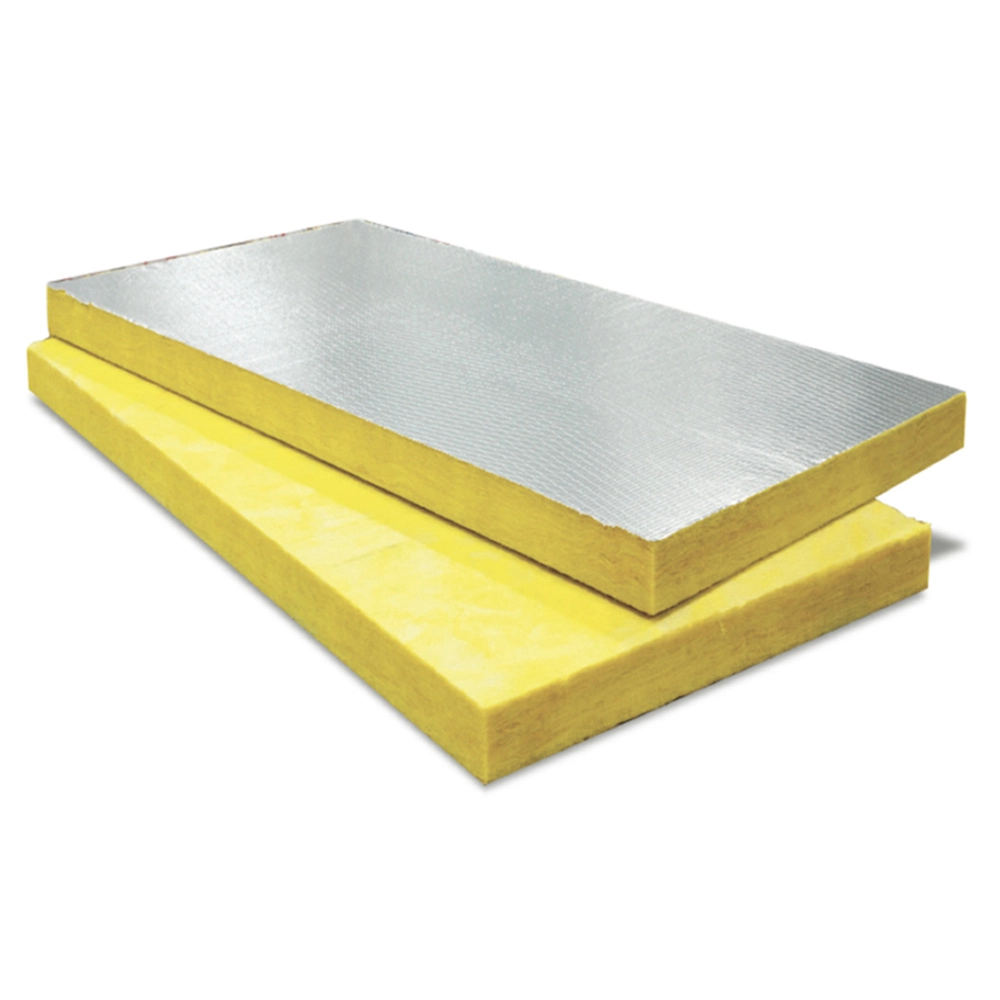
Rock Wool Pros and Cons
Rock wool is an excellent material for insulation. It is excellent for preventing noise, keeping objects warm or cold, and fending off fire. off fire. It's used a lot in construction, especially in places where energy efficiency, fire safety, and noise control are a top priority. Rock wool panels have a lot going for them, but there are some things to think about before you decide. Let's go over the pros and cons of rock wool insulation.
Advantages:
-
Fire Resistance: One of the standout features of rock wool insulation is its excellent fire resistance. Rock wool for gas fireplaces is particularly valued due to its ability to withstand high temperatures, offering superior protection against fire. Typically, rock wool is rated for over 1 hour of fire protection, making it ideal for fireproofing applications.
-
Thermal Insulation: With a high R value, rock wool insulation is highly effective at reducing heat loss, which translates to better energy efficiency and lower heating costs. The R value of rock wool insulation makes it a top choice for both residential and commercial buildings looking to improve energy conservation.
-
Eco-Friendly: Made from natural minerals such as basalt, rock wool is both recyclable and free from harmful chemicals, making it an eco-friendly insulation option. Unlike some other materials, rock wool insulation asbestos-free products ensure safety during installation and use.
-
Acoustic Performance: Rock wool soundproofing is another key benefit of this material. It’s highly effective at reducing sound transmission, making it perfect for noise-sensitive areas like offices, schools, and residential buildings.
Disadvantages:
-
Higher Cost: While rock wool insulation price can be higher than other materials like fiberglass or foam, its superior performance in fire resistance and thermal insulation justifies the cost for many applications. However, it may be a limiting factor for budget-conscious projects.
-
Complex Installation: Installing rock wool board insulation may require professional expertise due to its dense and fibrous nature. Improper handling can lead to skin irritation from the fine particles, making safety precautions necessary during installation.
-
Fragmentation: If rock wool cubes or rock wool boards are not handled carefully, they can break into small fragments that may irritate the skin or respiratory system. Proper protection, such as gloves and masks, is recommended to avoid these issues during installation.
-

Comprehensive Comparison: Rock Wool vs Fiberglass vs Mineral Wool
- When it comes to picking the right insulation material, a lot of people are stuck choosing between rock wool vs fiberglass or rock wool vs mineral wool. Rock wool and mineral wool are often used interchangeably, but they have distinct differences in composition and performance. Fiberglass has been a popular insulation material for decades because it's cheap and easy to get. To make an informed choice, it's essential to compare the key features of these materials, such as thermal efficiency, fire resistance, soundproofing capabilities, and more.
-
| Feature |
Rock Wool |
Fiberglass |
Mineral Wool |
| Material Composition |
Made from natural basalt or diabase rocks. |
Made from fine glass fibers. |
Made from a blend of natural and synthetic minerals, often similar to rock wool. |
| Thermal Insulation (R-Value) |
High R-Value, typically around 3.0 - 4.0 per inch. |
Moderate R-Value, typically around 2.9 per inch. |
Similar to rock wool, typically around 3.0 - 4.0 per inch. |
| Fire Resistance |
Highly fire-resistant (up to 1 hour of fire protection). |
Flammable unless treated with fire-retardants. |
Fire-resistant like rock wool, typically rated for 1 hour of fire protection. |
| Soundproofing |
Excellent sound absorption, ideal for noise reduction. |
Moderate soundproofing, less effective than rock wool. |
Similar to rock wool, provides excellent sound absorption. |
| Water Resistance |
Resistant to water, does not absorb moisture. |
Can absorb moisture, reducing insulation efficiency. |
Generally water-resistant, but can degrade if exposed to moisture over time. |
| Health & Safety |
Non-toxic, but can cause skin and respiratory irritation if not handled properly. |
Can cause skin irritation and respiratory issues due to glass fibers. |
Non-toxic, but like rock wool, can cause irritation if handled improperly. |
| Environmental Impact |
Recyclable and eco-friendly. |
Can be recycled but involves more energy-intensive production. |
Recyclable and considered eco-friendly, especially when made from natural minerals. |
| Cost |
Typically more expensive than fiberglass. |
More affordable compared to rock wool. |
Similar to rock wool in price, but slightly more affordable in some cases. |
| Installation |
Requires professional installation due to weight and density. |
Easier to install, lightweight material. |
Similar installation to rock wool, may require professional handling. |
| Durability |
Long-lasting and maintains insulation properties over time. |
Can degrade over time if exposed to moisture. |
Durable, but like fiberglass, can degrade in wet conditions. |
| Common Uses |
Used in residential, commercial, and industrial buildings, fireproofing, and high-temperature areas (e.g., rock wool for gas fireplaces). |
Primarily used in residential insulation, HVAC systems, and attic spaces. |
Used in a variety of applications, including industrial and residential insulation. |
What is rock wool used for
| Application |
Description |
| Thermal Insulation |
Rock wool panels are used to insulate walls, roofs, and floors to improve energy efficiency by reducing heat loss and maintaining indoor temperature. |
| Fireproofing |
Rock wool is highly fire-resistant, often used in fireproof doors, walls, and floors, and is ideal for gas fireplaces due to its heat resistance. |
| Soundproofing |
Rock wool excels at sound absorption, making it ideal for soundproofing in offices, schools, and residential buildings. |
| Industrial Insulation |
Used in high-temperature environments like petrochemical plants and power generation to insulate machinery, pipes, and boilers. |
| HVAC Systems |
Rock wool insulation is used in ducts and pipes to reduce heat transfer and improve HVAC system performance. |
| Green Building |
Rock wool is used in eco-friendly construction projects as it is recyclable and free from harmful chemicals, making it ideal for green building certifications. |
-

-
Installation of Rock Wool Panels
Rock wool panels are an excellent choice for insulation. They're perfect for making buildings more energy efficient, reducing noise, and protecting against fires. You can use them in homes, businesses, and industries. You've got to be careful when you're installing these panels because of their fibrous texture. It can irritate your skin and cause breathing problems. It's crucial to wear protective gear like gloves, goggles, and a mask. You can cut the rock wool board to size using a fine-toothed saw to make sure it fits perfectly in walls, ceilings, and floors. Depending on the project, the panels are usually stuck down with glue or fasteners. If you need extra insulation in a high-temperature environment or for industrial use, rock wool cubes are an option. The panels should be installed tightly, with no gaps, to make the most of their effectiveness in reducing heat loss and controlling sound.
Maintenance of Rock Wool Panels
Rock wool panels are pretty easy to maintain since they're durable and moisture-resistant, so they'll keep working well without getting ruined. However, it's crucial to periodically inspect for damage, particularly in areas that are susceptible to deterioration or moisture exposure. To ensure that the insulation is still effective, any damaged or compromised rock wool board sections should be replaced. Rock wool cubes, which are often used in industrial applications, should also be checked regularly to make sure they haven't been crushed or compressed, which could reduce their insulating properties. It's important to do regular maintenance checks to make sure rock wool panels keep performing well over time, especially in areas with a lot of foot traffic or in places where temperatures change a lot. It is possible to maintain its soundproofing and thermal qualities with proper maintenance.
How to Choose a Rock Wool Manufacturer?
-
Brand Reputation and Certifications
When choosing a manufacturer, go for one with a solid reputation and certifications like ISO, CE, and ROHS. These certifications ensure the manufacturer follows industry standards and that the products are top-notch.
Product Quality and Performance
Make sure the rock wool products have high thermal efficiency, fire resistance, and soundproofing capabilities, and check their R-value for optimal performance.
Technical Support and Customer Service
When choosing a manufacturer, go for one that offers helpful technical support, installation guides, and warranties. This will make sure you can use and install the product smoothly.
Price and Value for Money
Shop around to find the best deal based on performance and durability. This way, you can be sure you're getting a good value and balancing the cost with long-term benefits like energy savings.
Customization Options
Find a manufacturer that offers customizable options for rock wool panels. These options can include different sizes or specific fire-resistant features, so you can meet the needs of your project.
Sustainability and Environmental Impact
Pick a manufacturer that's all about sustainability, uses eco-friendly production methods, and has recyclable products to reduce the environmental impact.
About FUNAS: Your Trusted Partner for Rock Wool Products
FUNAS was founded in 2011 and is a leading manufacturer specializing in rock wool products and insulation solutions. We produce premium, certified rock wool insulation products at our state-of-the-art facility in Guangzhou. These products are designed to meet the stringent requirements of industries around the world. Our advanced technology gives our rock wool products excellent thermal, acoustic, and fire resistance properties, making them ideal for use in industries such as petrochemicals, power generation, and construction. Also, FUNAS has key certifications like ISO 9001, CE, ROHS, and UL, which make sure all products meet global standards for quality and safety. We're all about delivering top-notch solutions for our clients in different industries, which has helped us become a go-to partner for reliable rock wool insulation.
FAQs about Rock Wool
-
1. Is Rock Wool Fireproof?
Rock wool panels are highly fire-resistant and can withstand temps over 1000°C. This makes them perfect for things like rock wool board insulation in fireproof walls and gas fireplaces, making sure everything is safe in high-risk environments.
2. What is Rock Wool Made Of?
Rock wool is made by melting natural volcanic rocks like basalt at extremely high temperatures and spinning them into fibers. These fibers are used to make materials like rock wool boards and cubes. They're great for insulation in construction and industry.
3. How Long Does Rock Wool Insulation Last?
Rock wool panels and board insulation are made to last. They can last over 30 years without significant degradation, maintaining their thermal and acoustic properties throughout their lifespan.
4. Can Rock Wool Be Used for Soundproofing?
Rock wool is great for soundproofing because of its dense, fibrous structure. It's used in homes and businesses to cut down on noise. You can also use rock wool cubes in loud environments to improve the acoustics.
5. Is Rock Wool Environmentally Friendly?
Rock wool insulation is made from natural, recyclable materials, and its production process is eco-friendly. Unlike some other insulation materials, it doesn't contain harmful chemicals, making it a sustainable choice for both residential and commercial projects.
6. Can Rock Wool Insulation Get Wet?
Rock wool panels and boards are water-resistant, but they're not indestructible. If they get wet for a long time, they might not work as well. It's really important to keep rock wool dry when you're installing it and when it's in a damp environment. That way, you can be sure it'll keep its insulating properties.
7. How Does Rock Wool Compare to Fiberglass?
Rock wool usually does better than fiberglass when it comes to fire resistance and soundproofing. Rock wool panels are heavier and cost more, but they're great for high-performance applications because they're super durable.
8. Is Rock Wool Safe to Handle?
Rock wool is non-toxic, but it can irritate the skin or respiratory system if it's not handled properly because of its fibrous nature. It's important to use protective gear like gloves, goggles, and a dust mask when working with rock wool insulation to avoid irritation.
Conclusion
Rock wool is a fantastic insulation material. It's really versatile and essential. It's excellent for resisting fire, soundproofing, and thermal performance. When picking rock wool panels or rock wool board for your project, think about things like brand reputation, certifications, price, and technical support to find the best fit for your needs. If you want high-quality, environmentally friendly insulation that will last, rock wool insulation is the way to go. If you're in the market for rock wool insulation, whether it's for construction, industrial applications, or custom solutions, FUNAS is your go-to partner.
For more information or to get started with your insulation needs, reach us at:
Email: sales@funasinsulations.com
Phone: +86 190 6546 9334











































































